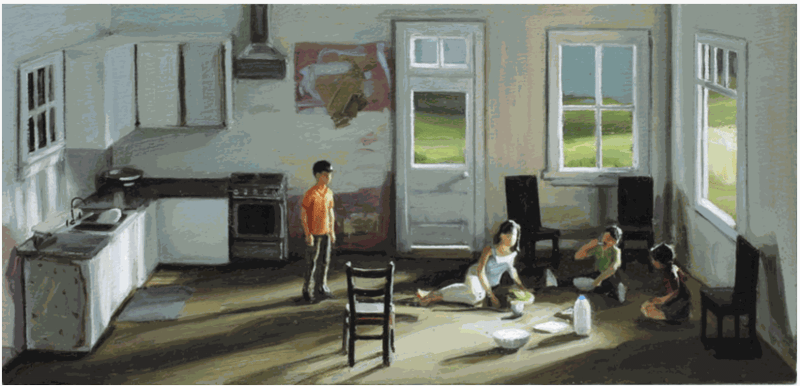From press release:
We Are Family assembles eighteen contemporary artists to reflect on notions of family we are born into and family we choose. In Keywords: A Vocabulary of Culture and Society, Raymond Williams traces the social formation of the term 'family' from the 14th century to its modern English usage, and to which he grafts the word 'familiar': "The associated adjective 'familiar' appears to be somewhat earlier in common use, and its range of meanings reminds us of the range of meanings which were predominant in family before [the mid-17th century.] There is the direct sense of the Latin 'household,' either in the sense of a group of servants or a group of blood-relations and servants living together in one house. 'Familiar' related to this…where the sense is of being associated with or serving someone…But the strongest early senses of 'familiar' were those which are still current in modern English: on terms of friendship or intimate with someone." We Are Family is strangely familiar.
Erich Fromm offers an epistemology of family in The Art of Loving: An Enquiry into the Nature of Love that might be more useful to think (and feel) about our cultural yearning for a sense of family, our longing to belong to the familiar, and our motivation to be loved: "to avoid alienation and isolation…to overcome human separateness as the fulfillment for the longing for union." (Since the deadly, mutating coronavirus-19 made its first appearance, our fear and anxiety of alienation and isolation has intensified.)
We Are Family embraces intersectionality, avoids saccharine sentimentality, and repudiates an archaic (and oppressive) ideology of "family values." In this group exhibition, the modern family is visible (and celebrated) across social constructions of class, race, sexuality, and gender, in order to impart a sense of what Cornel West refers to as "non-market values of love, care, and trust" that inspires our longing to belong both born and chosen family.
For more information:



